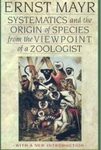Urban ecologist Stephen DeStefano's day job routinely involves man-handling moose--and deer, beavers and bears--that have ventured into territory now claimed by humans. His fear is that as the human population continues to rise, land once available for wildlife is being commandeered for housing, roads and shopping malls. As our settlements sprawl, wild animals become pests." In 'Coyote at the Kitchen Door', DeStefano challenges that arrogant mindset. He vividly describes the wonder of his encounters with wild animals in wild places, and grippingly conveys why even suburban coyotes deserve respect."
- Gail Vines, New Scientist, 20100116
"DeStefano weaves personal stories of his own wild encounters with scientific evidence on the negative effects that light, noise, traffic, road building and other human activities have on the wild animals in our midst. As the book unfolds, readers are drawn into his questions and are called to rethink 'our overwhelming occupation of the landscape.'"
- Lyanda Lynn Haupt, Los Angeles Times Book Review, 20100131
"DeStefano, a wildlife biologist, examines the expanding field of "urban ecology" in this pithy volume. Urban ecologists study changes in human-animal interactions caused by factors like sprawl, traffic, and noise pollution, in an attempt to understand why some species (the mountain lion, say) are badly disrupted by human developments, while others, such as the coyote, appear to be thriving--turning up in more and more Eastern back yards. DeStefano cites some alarming facts: in the past half century, the average size of the American home has grown from nine hundred and eighty-three square feet to twenty-three hundred and fifty; the mere presence of a paved road alters the ecosystem for three hundred feet on either side of it. But, having experienced the benefits of a suburban childhood, he refuses to reduce his thinking to a view in which wilderness preservation is the only solution."
- New Yorker, 20100201
"This book is about a topic that matters--our engagement with the land and its animals. The coyote is not just the trickster. It is part of the stories that suggest how we should behave for the sake of our own futures."
- Jules Pretty, Times Higher Education, 20100318
"A highly readable and thought-provoking work in which DeStefano takes us into his world and the world of the wildlife he admires. It also is the world in which we must live because we created it--but we also can change it if we work at it."
- Mae Woods, Bell Rocky Mount Telegram, 20100405
"Narrating the travels of a plucky female coyote, the author explores humans' evolving relationship with nature and the violence of our light, noise, and traffic. Along the way, he offers us a glimpse at his own restless spirit, born in the Boston suburbs but drawn to the desert Southwest; resentful of human wastefulness yet exhilarated by the open road. DeStefano's willingness to probe his own ambivalence about the possibilities of coexistence with nature allows this selection to be about much more than just wild canines."
- Brendan Driscoll, Booklist, 20100101
"Reading this book will help you better understand coyotes and what may be going through the mind of Wile E. Coyote & Co. It also helps you understand the omnivorous and highly adaptive coyote, which are real survivors. Stefano ultimately calls for a new suburban wildlife ethic of coexistence, and people who habituate coyotes and other wildlife, should read what he has to say."
- James Swan, ESPNOutdoors.com, 20100902




































